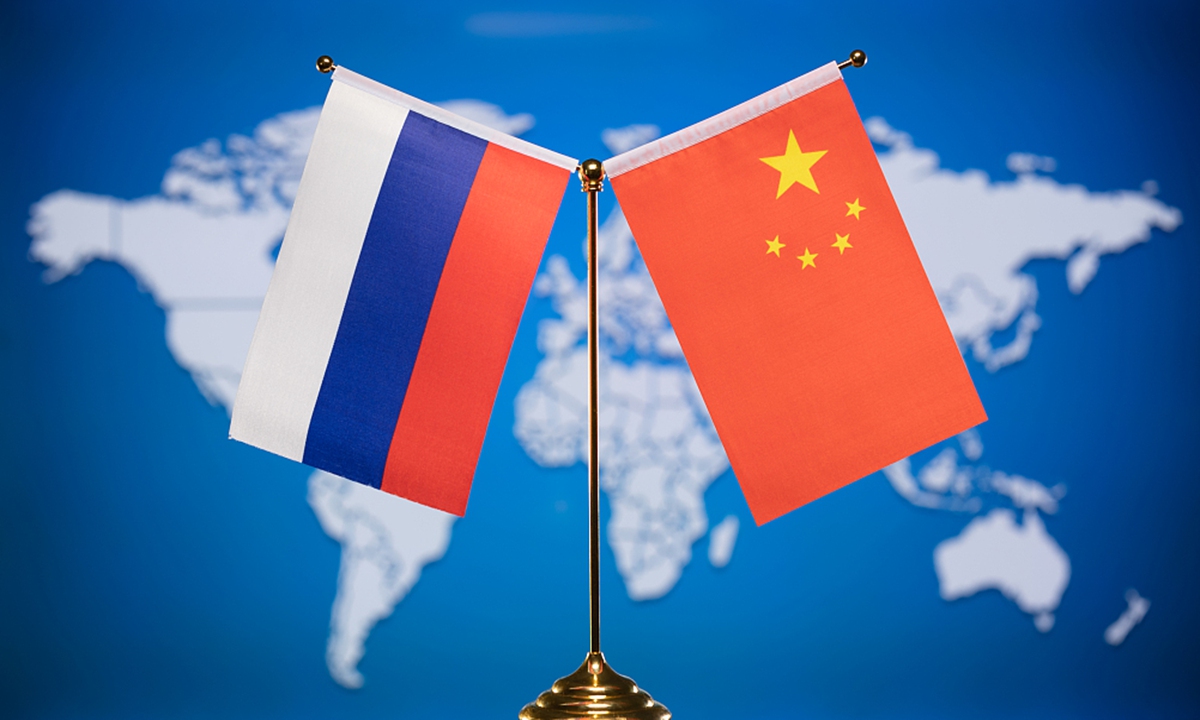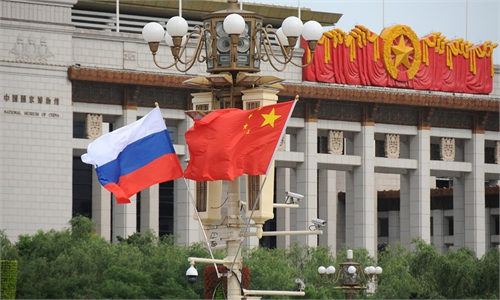
China Russia Photo: VCG
The 2022 Beijing Winter Olympic Games will commence on February 4. Based on the concept of "green Olympics," all of the 26 venues for the Games will be powered with 100 percent renewable energy. The idea of "green Olympics" provides Chinese wisdom on how to deal with the relationship between development and conservation.In order to meet the serious challenge of global warming, both China and Russia have set the strategic goal of low carbon and green gas emissions reduction, which puts forward new requirements for energy transformation in both countries, while creating new opportunities for green energy cooperation between Beijing and Moscow.
Green and sustainable development is a common goal of China and Russia. Therefore, promoting energy transition and developing green energy cooperation is in their common interests.
China remains the largest carbon emitter and Russia is one of the world's major powers with the highest carbon emissions intensity. Both countries are in the process of industrialization and facing pressure to reduce emissions. They also face the threat of trade protectionism and Western sanctions. The implementation of the European carbon border tax, in particular, will cause huge losses to Russian energy exports. As a result, closer green energy cooperation is in line with the common interests of China and Russia.
Energy saving and emissions reduction have been prioritized by both countries. China has put forward its solemn commitment to reaching peak carbon emissions by 2030 and achieving carbon neutrality by 2060. In October 2021, Moscow also approved a new 2050 Strategy of Social and Economic Development with Low Greenhouse Gas Emissions, outlining low greenhouse gas emission development measures until 2050.
Natural gas cooperation is of great strategic importance for the two giant nations. For China, natural gas is important in promoting energy transformation, combating haze and improving atmospheric environment. As China has become the world's largest natural gas importer, cooperation with Russia can help China secure a long-term, stable guarantee for natural gas, which is of great strategic importance for safeguarding national energy security and establishing a diversified overseas energy supply system.
Europe's energy exports from Russia have declined after the imposition of the EU carbon border tax. Therefore, China as a stable gas export market has a strategic significance to Russia's energy sector. In recent years, the two countries have been cooperating in many natural gas projects. In the future, Beijing and Moscow should continue to deepen cooperation in the field of natural gas for ongoing integration of interests.
China and Russia also have a good foundation for nuclear energy cooperation. Russia has gathered rich experiences in the field of nuclear energy development, and China and Russia have been engaging in nuclear energy cooperation for many years. Tianwan and Xudapu nuclear power plants of China are two successful examples.
Apart from deepening cooperation in traditional fields such as nuclear power, nuclear fuel and fast neutron reactors, China and Russia should actively explore the potential for cooperation in new fields such as nuclear medicine, nuclear environmental protection, and digitalization of renewable energy development. Moreover, both countries need to explore various cooperation models, such as joint research and development, construction, as well as implementation and transformation of scientific and technological achievements.
Cooperation on hydrogen energy is also an important direction for China-Russia joint exploration. Russia has proposed in the 2050 Strategy of Social and Economic Development with Low Greenhouse Gas Emission that it should diversify energy sources and let natural gas, hydrogen and ammonia play a greater role in the low-carbon energy structure.
As Russia has a unique resource base and industrial conditions for hydrogen energy development, China and Russia can carry out cooperation in low-carbon hydrogen production and long-distance and large-scale hydrogen transportation, therefore jointly exploring the construction of a China-Russia green hydrogen base.
Green finance can help promote energy cooperation between the two nations. Green credit, green bonds, Green trusts, green funds, green insurance, supply chain finance and other financial tools can expand financing channels for green energy cooperation. Strengthening support for green energy investment policy insurance can lay the financial foundation for the development of green energy cooperation between both countries.
The author is a research fellow at the Institute of East European, Russian and Central Asian Studies of Chinese Academy of Social Sciences. The article is one of a series as part of a project that aims to analyze China-Russia relations against the backdrop of the 2022 Beijing Olympic Winter Games. opinion@globaltimes.com.cn


